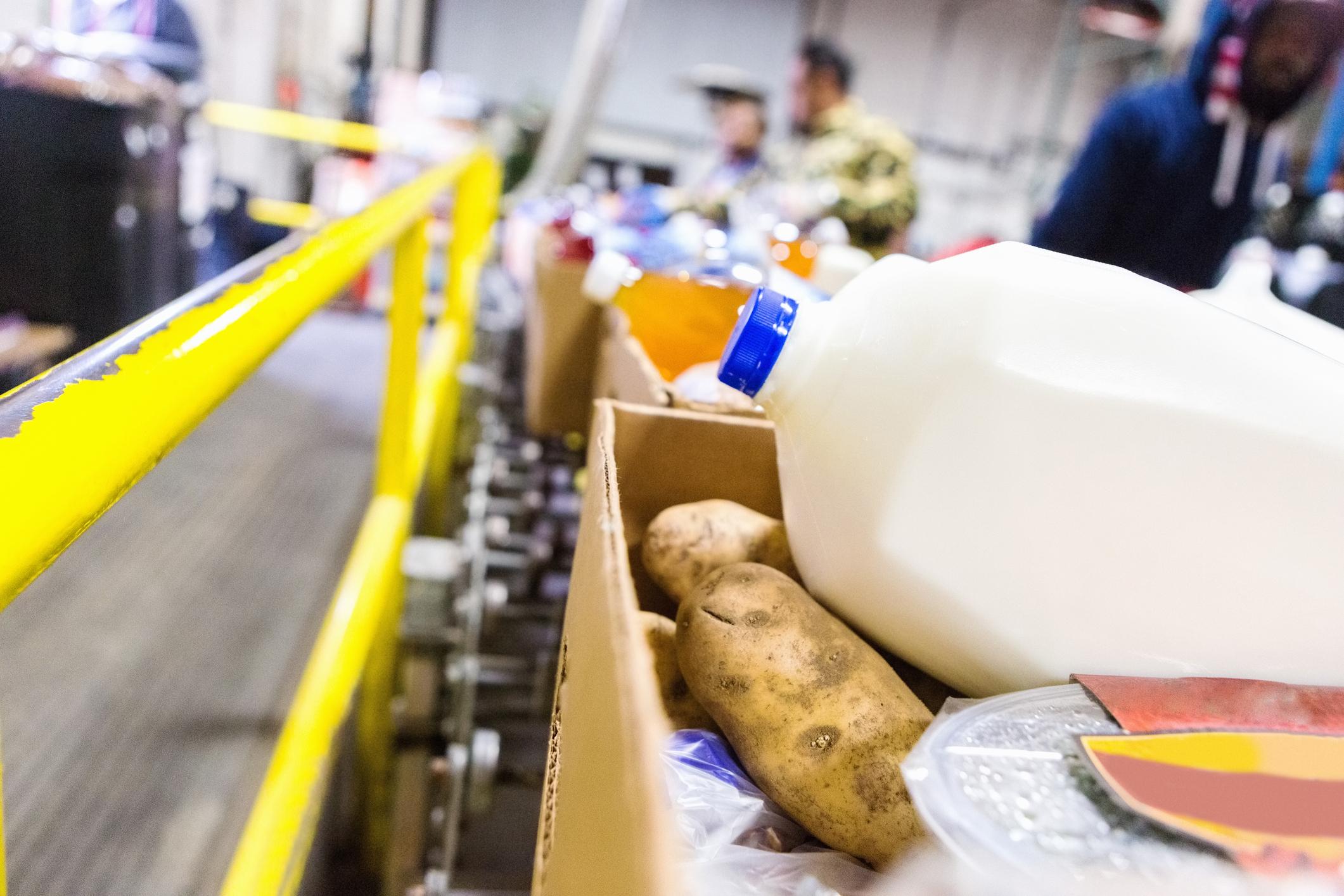
We need to end the 5-week wait for Universal Credit – here's how
It should be our social security system, rather than foodbanks, that helps us keep our heads above water when we’re struggling. More flexibility in Universal Credit could make a big difference.
No one should have to rely on charity to meet their basic needs, but the continued reliance on foodbanks by families across the UK paints a worrying picture of the growing pressures they face. Reports from organisations like Trussell continue to show how low pay, insecure jobs, rising living costs, and unexpected life events like illness or relationship breakdown are sweeping people into poverty. As a compassionate nation, we should not accept this.
Our social security system is meant to provide a safety net during tough times. But findings from Policy in Practice for JRF show that Universal Credit is adding to the turbulence rather than providing an anchor.
One of the most significant challenges people encounter when moving onto Universal Credit is the minimum 5-week wait for their first payment. In reality, this wait can often extend beyond 5 weeks due to errors or complications with claims. Although claimants are offered an Advance Payment (effectively a loan to cover living costs during the wait), this has to be repaid, leaving recipients with less money to live on in subsequent months.
Dragged Deeper into Poverty
A new claimant described how a temporary injury left him unable to work, and the lengthy wait for his first Universal Credit payment left him deeper in debt. They said:
"I can’t wait to get back to work because this is a nightmare… I’m now a month behind with everything… plus, I have to keep paying back the Advance. I was borrowing money from friends and family just to survive that first month, but now I’m still struggling to catch up."
Another working claimant, who transitioned from tax credits to Universal Credit, was forced to rely on credit card debt and struggled to make childcare payments. They said:
"I told my childminders ‘I haven’t been paid, so I can’t pay you this month, but I still have to go to work and bring my child here’."
The scale of the problem
Our original research in 2019 found that around 2 million families are on Universal Credit, with a further 4.7 million set to move on to it by the time the rollout has been completed in 2023. We estimate that 2 in 5 families due to move onto Universal Credit will be unable to meet basic living costs during the five-week wait. That’s 2 million families struggling to stay afloat in an impossible situation, unable to afford the basics we all need to get by. Of these, around 700,000 will continue to face a shortfall as they repay their Advance over the following year.
A redesigned universal credit could provide a lifeline
Universal Credit has the potential to serve as a lifeline for families facing poverty if some of its structural flaws are corrected. Here are 2 changes that could make a profound difference:
- More flexibility in backdating claims: Under the current system, backdating claims requires an unnecessarily high level of proof. Allowing more flexible backdating would mean many claimants could receive their first payment sooner.
- Improving repayment terms: The repayment of Advance Payments and other debts could be made more manageable. Additionally, offering the choice of fortnightly payments—as has already been implemented in Scotland from the second month of a claim—could help households manage their finances more effectively. Ideally, this option should be available from the start of the claim, meaning the first payment would come after 2 weeks rather than 5.
Immediate solutions: help for families right now
The rollout of Universal Credit is ongoing, and there is an urgent need to provide more assistance to families struggling today. Here are 2 immediate changes the Government should consider:
- A 2-week Child Tax Credit "run-on": For families with children, Child Tax Credit should be extended for 2 weeks after a claim for Universal Credit has been made. Our original research in 2019 found that this would have costed £430 million over the four remaining years of the rollout.
- Upfront grants for those in need: Introducing an upfront grant for families unable to cover basic living costs during the 5-week wait would be a significant lifeline. This grant could be targeted to the most vulnerable households. Our original research in 2019 found that this would have costed around £1.3 billion over the next 4 years. Alternatively, a more focused approach—targeting only those who are expected to have continued shortfalls—would cost around £300 million.
Getting Universal Credit right
Making the necessary adjustments to Universal Credit is vital to ensure that people are not further plunged into hardship when they are at their most vulnerable. Equally important is the need to restore trust in the system, ensuring that it lives up to its potential as a tool for reducing poverty in the UK.
This blog was first published on 19 September 2019.

This idea is part of the social security topic.
Find out more about our work in this area.
